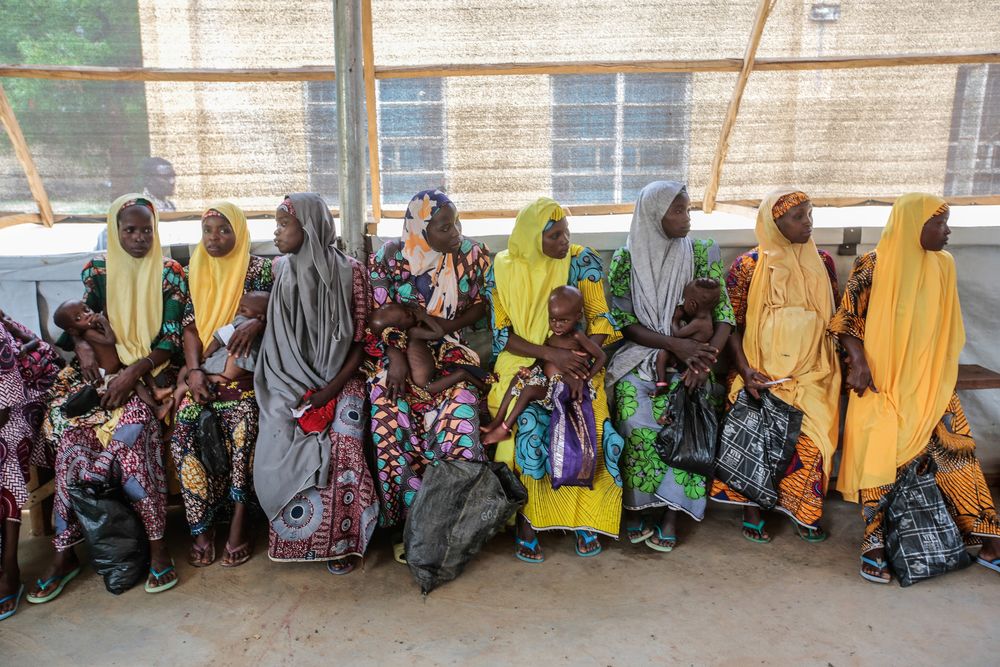Katsina State, Nigeria
A state of hunger

A growing, yet largely ignored, malnutrition crisis is unfolding in northwest Nigeria, which threatens the lives of tens of thousands of children, the medical humanitarian organisation Médecins Sans Frontières /Doctors Without Borders (MSF) warned.
Humanitarian assistance lags far behind in northwest Nigeria, that’s partly because the UN have failed to include the region in its humanitarian response plan for the country for the current year, which primarily focuses on the critical situation in the Northeast. As a result, many organisations are struggling to follow up on assessments and secure funding to implement lifesaving support in northwest Nigeria, despite the known acute needs.
Muslaha Abubakar is 25, she carries her child while waiting for a medical consultation at the MSF Kofar Marusa ambulatory therapeutic feeding centre, Katsina State, Nigeria, June 2022.
Muslaha Abubakar is 25, she carries her child while waiting for a medical consultation at the MSF Kofar Marusa ambulatory therapeutic feeding centre, Katsina State, Nigeria, June 2022.



Much of northern Nigeria’s population are severely food insecure. More and more attacks by armed groups locally known as "bandits," communities prevented from getting to their fields and livelihoods and increasing food prices have triggered a major nutritional crisis that is going to get worse.
In 2022, MSF’s teams are preparing to treat as many as 100,000 malnourished children in Katsina State’s only nutrition programme. The hunger gap has barely begun, and with the peak malaria season yet to come, the situation will likely deteriorate further.
With few international relief organisations present in the region, without more aid the nutrition situation could become unmanageable. As the 2022 humanitarian response plan focuses solely on northeast Nigeria, many organisations are unable to secure the funding they require to deploy operations in the northwest of the country.
Increasing support
As MSF is almost the only organisation responding to the nutrition and health needs of severely malnourished children in the region, its teams continue to provide assistance in Katsina, Zamfara, Kebbi, Sokoto and Kano States. Between January and June 2022, they treated over 50,000 children suffering from acute malnutrition in five northwest Nigeria states. 7,000 of the children were hospitalised.
“The plight of malnourished children in northwest Nigeria cannot continue to be neglected,” said Froukje Pelsma, MSF head of mission in Nigeria. “International donors and agencies, including UNICEF and the World Food Program, must increase their support to health facilities to provide communities with access to nutritional treatment, in collaboration with the Nigerian authorities who must contribute as well.”
Patients waiting in line at Kofar Marusa ATFC, Katsina State, Nigeria, June 2022.
Patients waiting in line at Kofar Marusa ATFC, Katsina State, Nigeria, June 2022.



